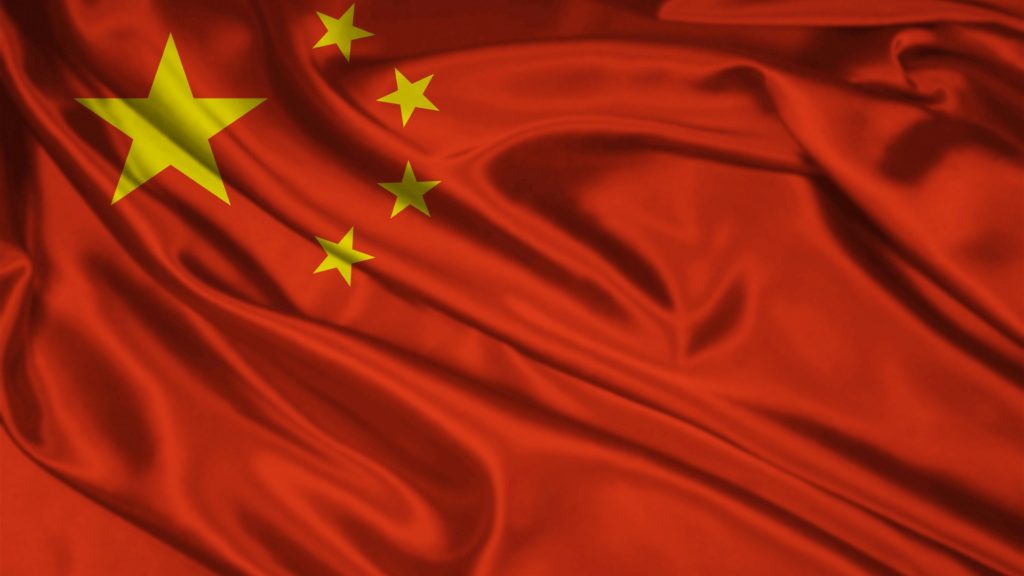On Friday, the trade war between the U.S. and China began as tit-for-tat tariffs were levied on one another by each of the two superpowers that effects everything from beans, to beef, to Buicks, signaling to some economic experts that it will damage the world economy. Although President Donald Trump is confident that import duties from China will not hurt the homeland, the Red Dragon may be able to strike in other ways than just tariffs.
According to a report from Yahoo News, Chinese port officials have already tightened inspections of American cars and pork, causing delays and back ups in sales. Considering this only slows down the supply chain, basically just becoming a nuisance, Beijing could crackdown on Western imports with a full-blown boycott,possibly even inflated by an intense propaganda movement.
Currently, General Motors sells more cars in China than it does in the U.S., all due to a lack of supply and a skyrocketing demand. Other automotive brands benefit from Chinese business, but GM has a major market share in the east.
While the Chinese could pull the vast bureaucratic blanket over the face of firms and instill a campaign made from red tape, an effective boycott by Chinese consumers would allow officials to stand far back from a disruption to sales that could see backlash from the U.S. Chief Asian economist Mark Williams with Capital Economics says this may be route the Chinese take based on historical actions with other nations.
“In the past, these have proved both effective and fast,” said Williams. For example, he explained that campaigns against South Korea and Japan during times of political tension, “led to 50-percent falls in car sales by those countries’ firms in a single month.”
In 2017, Reuters reported that a year-long diplomatic stand off between Beijing and Seoul led to South Korean retailer Lotte being forced to shutdown over 75 percent of its stores in China after Seoul provided the U.S. with land to deploy an anti-missile shield that Beijing opposes.
The shopping districts that were once jammed with Chinese buyers in Seoul became ghost towns after China cited “fire safety violations.” Upon surveying their shops to determine the shutdown was over politically-charged false pretenses, inspectors failed to show up, leading to the further downfall of the shopping chain.
This could lead to an additional problem with American businesses in China like Starbucks and dozens of other companies.
Boeing sells around 25 percent of its airplanes in China, which is soon to become the largest market in the world. The U.S.-based aerospace giant is battling with European rival Airbus as the top manufacturer, not only in China, but throughout the world. As most Chinese airlines are under state control with their orders coming directly from Beijing, a simple “fuse relay problem” could spell trouble for the U.S., even if it isn’t true.
When it comes to tourism, 350,000 big-spending Chinese students head to America each year, whom play a part in bolstering local economies. Williams says, “Chinese spending on travel and education in the US is similar in size to its spending on U.S. soybeans and aircraft – the two largest goods purchases.”
There is precedent for halting travel visas as in previous years, the single-party communist regime has limited tour groups to Taiwan and South Korea to ramp up political pressure. If the same tactic is instilled on the U.S. it would have a big impact on the economy.
The only caveat with this is that it would undermine efforts taken by Beijing to increase technical and scientific capabilities, most of which are learned and harnessed at American universities.
According to an article from The Balance, China owns $1.19 trillion in U.S. debt – 19 percent of the $6.29 trillion in Treasury bills, notes, and bonds held by foreign countries. Chinese officials have reportedly started slowing purchases, leading eventually to a complete halt. While that may be one of the most powerful bargaining tools in dealing with the Trump Administration, it could very well backfire on Beijing as a self-inflicted hit to their economy.
China could also devalue the yaun to boost exports. But, China has had a problem with the wealthy funneling money out of the country in the past – the recent past. A weaker currency could offset a but of the economic damage inflicted by the U.S., but capital outflow could spell a fast downturn in financial stability.
Instead of fighting on the economic front, Beijing could turn to power brokering. China is vital to the situation with North Korea. They help the Trump Administration place checks on Kim Jong-Un, insofar as their nuclear program is concerned and with economic sanctions, albeit quietly. Therefore, if China becomes more than just displeased with Trump’s tariffs, the U.S. may be going in alone in negotiations with the North.

